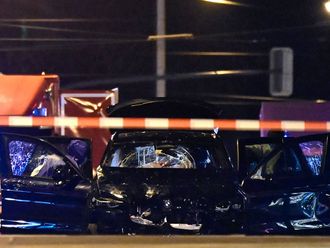Gaza: The Abu Hajaj family living in Johir Al Deik area wasn’t expecting justice from the Israeli military court in Jaffa for killing members of their families during the war on the Gaza Strip. However, to their surprise, the killer received a diluted judgement of just 45 days.
Ria Abu Hajaj, 64, and her daughter Majda, 37, were killed on the first day of the Israeli Defence Force’s ground operation in Gaza, on January 4, 2009.
An Israeli soldier from the Golani commandos unit was accused of killing the two women in the Gaza strip during operation cast lead in 2009.
Majed Abu Hajaj, the 33-year-old son and brother of the victims said: “I was shocked in the beginning from the statement of the court since the soldier killed two harmless women holding a white flag in one hand and a child in the other. It seems as though none of what they were holding could have prevented them from being killed.”
According to human rights reports, when the two women saw tanks about 150 metres (yards) away from them, the two of them waved the (white) flags, and the children present sat on the ground to make sure they would be safe.
“Suddenly, and without warning, shots were fired at the residents, killing Majda on the spot. Her mother, Ria, was severely wounded by the gunfire and later died from her wounds.
Majed added, “This statement killed them once again because of its injustice. The Israeli soldier who killed them is supposed to have got a life sentence.” The Goldstone Report is a 575-page report that accuses Israeli forces and Palestinian fighters of war crimes during their conflict in Gaza in the winter of 2008-2009. It was compiled by a UN-appointed delegation led by Judge Richard Goldstone, and sparked great controversy in Israel upon its release in 2009.
The soldier, who was not identified, could have faced up to 20 years in prison on a manslaughter charge.
The Palestinian centre for human rights followed this case in the Israeli courts and succeeded in forcing the Israeli army to pay compensation to the family a year ago.
Mohammad Al Alami, from the legal unit of the centre, said: “Even during times of war, there are things are not acceptable under any circumstances such as killing harmless civilians; especially women and children.
“Following a mediation process and upon examination of the evidence with the recommendation of the military court, the Israeli soldier was convicted of using a weapon illegally” according to the Israeli Radio.
Al Alami added, “What really happened in this case is that the court dropped the civilian rights of the Abu Hajaj family and manipulated the law in a way to not accuse the soldier for murdering.”
During operation cast lead which lasted 23 days, more than 1,400 Palestinians, mostly civilians, and 13 Israelis were killed.












